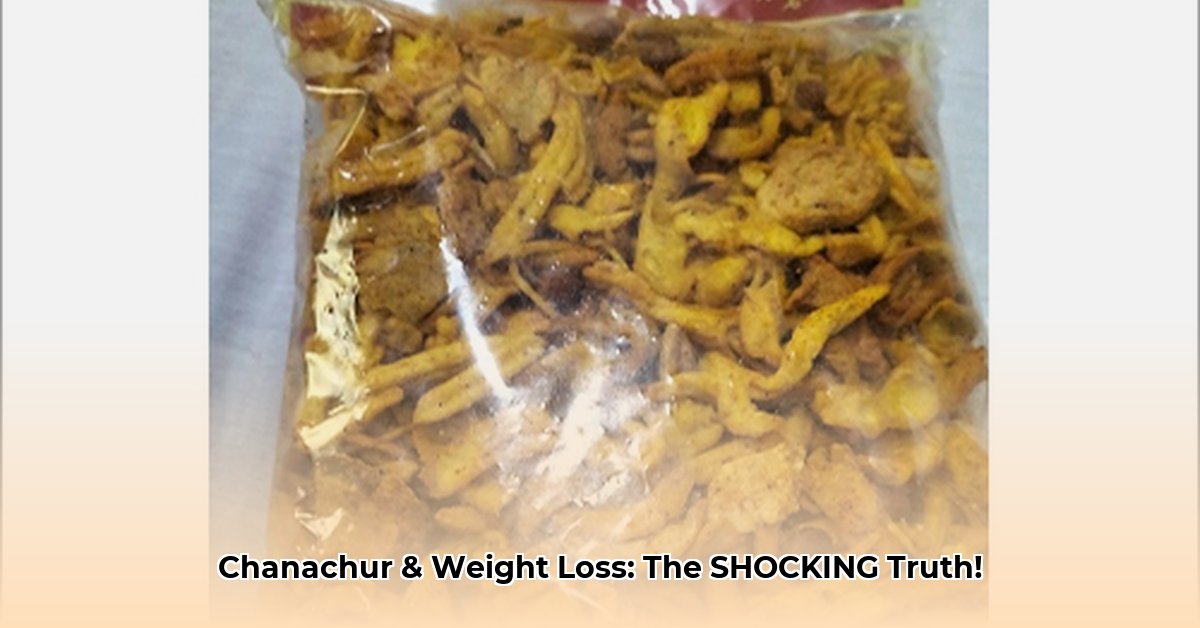
What's the Claim?
The claim is that chanachur, a popular savory snack mix, aids in weight loss.
The Evidence (or Lack Thereof)
Chanachur's composition varies greatly depending on the brand and recipe. However, common ingredients include fried lentils, chickpeas, nuts, and spices. While these aren't inherently unhealthy, the processing and combination often result in a high-calorie, low-satiety snack. A typical serving likely contains a high proportion of carbohydrates and fats, with relatively low protein. This macronutrient profile is not conducive to weight loss. High carbohydrate content can lead to blood sugar spikes and subsequent crashes, resulting in increased hunger and cravings. The high fat content significantly contributes to the overall calorie count. A small bag of chanachur can easily contain 400-500 calories, a substantial portion of many individuals' daily calorie allowance.
Furthermore, scientific research directly supporting chanachur's efficacy in weight loss is lacking. There's no robust evidence to suggest it promotes fat burning or contributes to significant weight reduction.
Counterarguments and Rebuttals
Some argue that chanachur is a "filling" snack. While it might temporarily satisfy hunger due to its volume and salt content, this feeling is short-lived. The lack of sustained energy and essential nutrients like fiber means hunger will likely return quickly, undermining weight loss efforts. The high-calorie content easily negates any perceived satiety.
Another claim is that chanachur is a "better" option than other unhealthy snacks. While it might be relatively less detrimental than some highly processed sugary snacks, it doesn't make it a suitable choice for weight loss. Numerous healthier, lower-calorie alternatives provide more nutritional value and actively support weight management goals.
Conclusion: Is Chanachur Good for Weight Loss? No
Based on its typical nutritional profile and the absence of supporting scientific evidence, chanachur is unlikely to aid in weight loss. Its high-calorie, high-fat, and low-protein composition hinders rather than supports weight management goals.
Actionable Advice: Sustainable Weight Loss Strategies
Sustainable weight loss is achieved through a holistic approach encompassing diet and lifestyle changes. Instead of relying on potentially misleading claims about snack foods, focus on these evidence-based strategies:
- Prioritize Whole Foods: Consume a balanced diet rich in fruits, vegetables, lean protein, and whole grains.
- Control Portion Sizes: Be mindful of your calorie intake; use measuring cups and food scales if needed.
- Choose Nutrient-Dense Snacks: Opt for snacks high in protein and fiber, such as Greek yogurt, a handful of nuts (in moderation), air-popped popcorn, or fruits and vegetables.
- Increase Physical Activity: Incorporate regular exercise into your routine. Aim for at least 150 minutes of moderate-intensity aerobic activity per week.
- Seek Professional Guidance: Consult a registered dietitian or healthcare professional to create a personalized weight management plan tailored to your specific needs and health status.
Remember, there's no magic bullet for weight loss. Focus on building healthy, sustainable habits for long-term success.